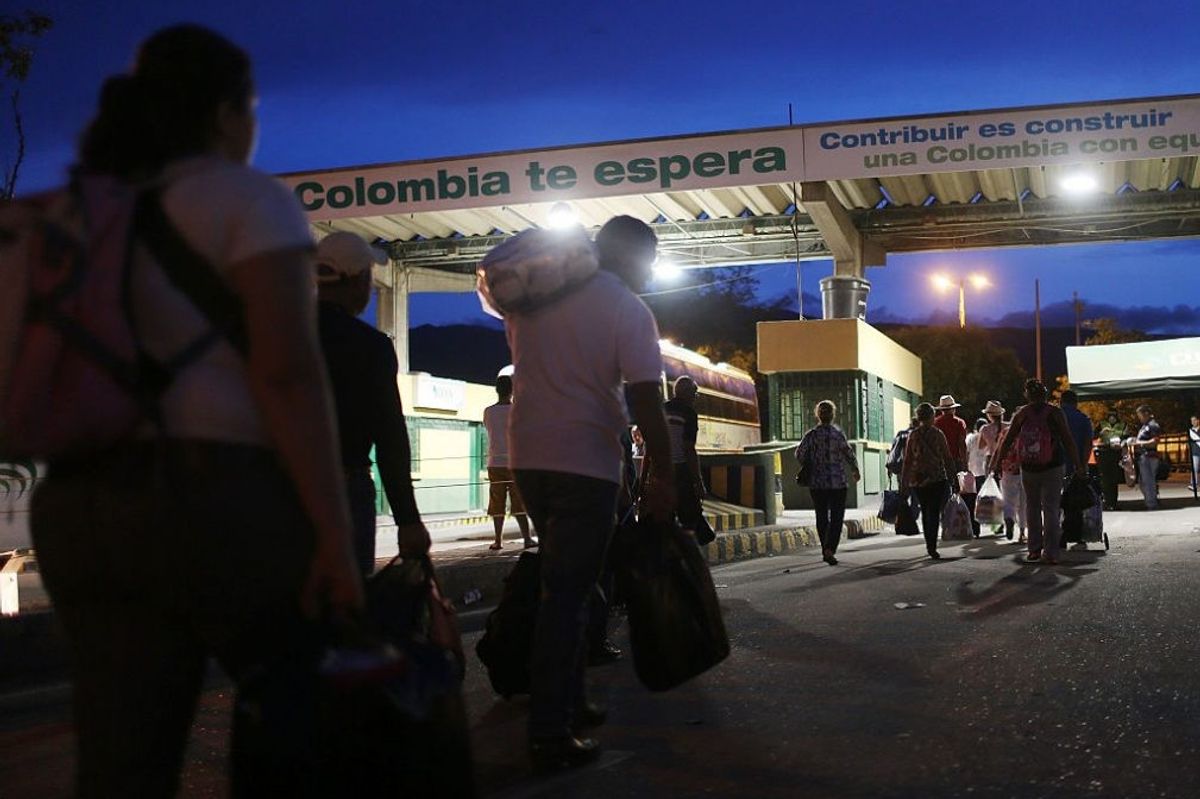367 members of Brazil’s lower house of Congress voted Sunday to advance impeachment proceedings aimed at ousting Brazilian President Dilma Rousseff. That’s 25 more votes than the requisite two-thirds majority and may boost Brazil markets today. Camila Abdelmalack, the chief economist of brokerage at São Paulo-based CM Capital Markets, told Bloomberg, “On Monday assets will rise, but not in an extraordinary way. The impeachment win Sunday has already been priced in, however the victory was by much more votes than anticipated and this will certainly help on the general mood.”
The Senate is expected to vote early next month on whether to launch an impeachment trial against Rousseff. If a majority of senators vote in favor, they have 180 days to conduct the trial. During the hearings, Rousseff would be suspended and replaced by Vice President Michel Temer. If at the close of the trial a two-thirds majority votes in favor of impeachment, Rousseff will be out for good.
The closer Rousseff comes to impeachment – for allegedly using creative accounting techniques to make Brazil’s budget deficit appear smaller ahead of the 2014 presidential election – the more stock markets rally. The Bovespa benchmark stock index has risen more than 20 percent this year. On March 17, mass protests calling for Rousseff’s removal (heightening bets on her impeachment) caused the Bovespa to surge 5.4 percent in early trading and strengthened the Brazilian currency the real by more than two percent. Since late February, share prices in São Paulo have risen by 25 percent.
But the market euphoria seems overly optimistic. Ricardo Sennes, Partner at Brazil’s Prospective Consulting and Non-resident Brazil Fellow at The Atlantic Council, says the short-term economic outlook in Brazil is poor. However, investors can place bets on an improved medium- and long-term situation. Sennes explains that this is because Brazil is in the midst of a political crisis, not an institutional one.
Phil Chicola is less confident. The former Chargé d’Affaires to Brazil told The Cipher Brief structural problems with Brazil’s political system will make reform difficult: “The necessity to ‘buy’ congressional support by providing jobs and other rewards to local elites will remain an obstacle to good governance,” Chicola said.
This web of dirty money politics is what Claudio Couto, a political scientist at Brasília-based Fundação Getúlio Vargas, calls “the dark side” of the modernization of the Brazilian political system. Democratic modernization has increased the cost of campaigns. “If you can’t raise funds, you can’t be a politician in Brazil,” he said.
Other obstacles to economic and political reform in Brazil include the following: a nearly 1,000 page long constitution that enshrines many items that should be legislated; the tangles of federal, state, and local government red tape; and Brazil’s dependence on commodity exports, including oil. Chicola notes, “Its industrial sector was damaged by Brazil’s willingness to open its markets to Chinese goods in exchange for the PRC’s support for Brazil gaining a permanent seat in the UN Security Council.” This coupled with a sharp decrease in Chinese demand for commodities will continue to take a toll on Brazil’s economy.
Yet it’s not all bad news for Brazil’s future. If Rousseff is impeached and Vice President Michel Temer takes over the presidency, he will surely want to boost investor confidence and, therefore, undertake a series of reforms including privatization, budget cuts, a tax code overhaul, and relaxation of labor laws. What is unclear is if Temer would be able to retain control of the government until the 2018 election due to his own implication in the impeachment allegations. Still, Chicola told The Cipher Brief that efforts to impeach the Vice President would likely not succeed “baring some new developments.” And Couto claims an early election is unlikely, because it would be difficult to pass the requisite constitutional amendment through Congress. That means, upon a Rousseff impeachment, Temer would be at the helm for at least the next two years.
A number of investors – as the markets have been showing – are putting their faith in a Temer-led government. Leonardo Monoli, a partner at investment firm Jive Asset Gestao de Recursos, predicted that over the coming months the real will appreciate, the Bovespa index will climb, and long-term interest rates will fall (boosting investment).
Kaitlin Lavinder is an International Producer with The Cipher Brief.








